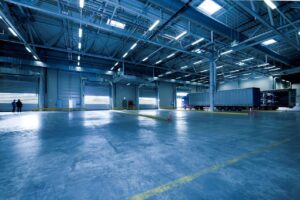
For your air conditioning (AC) system to last longer and provide comfort throughout the warmer months, maintenance is essential. In addition to keeping your house cool, an effective AC system lowers energy expenses and guards against unplanned malfunctions. Your air conditioner can be kept operating smoothly and effectively with routine maintenance and a few easy steps. You’ll find five crucial pointers in this article to maintain the optimal condition of your air conditioning system.
Regular Filter Replacement
Replacing the air filters on a regular basis is one of the easiest but most efficient methods to maintain your air conditioning system. Due to airflow restrictions and more effort on the part of the system, dirty or clogged filters can drastically lower the effectiveness of your air conditioning unit. This may result in the unit using more energy and experiencing more wear and tear. Replace your AC filters if they seem dusty after checking them at least once a month. Depending on usage and kind, filters for the majority of systems should be changed every one to three months. Clean filters aid in preserving system function, increase airflow and improve indoor air quality.
Cleaning the Coils
Your air conditioning system’s evaporator and condenser coils are essential for cooling your house. These coils’ capacity to absorb and release heat may be diminished over time as a result of dirt and debris buildup. Energy usage may rise, and efficiency may decline as a result. Check the coils frequently and clean them of any dirt or debris to maintain them clean. The condenser coil, which is outdoors, may need to be cleaned more frequently than the evaporator coil, which is within the unit. This is especially true if the external environment is dusty or has a lot of greenery. To thoroughly clean the coils, think about hiring a cleaner. For a gentler cleaning, use a soft brush or a vacuum.
Checking and Clearing the Condensate Drain
The moisture that your air conditioning system draws out of the air is extracted and dumped into the condensate drain. Algae, mold, or debris buildup in this drain over time can cause water damage, elevated humidity, and even system failures. Regularly check the condensate drain and remove any obstructions you discover. To get rid of debris and stop mold and algae development in the drain, you can use a wet/dry vacuum or run a vinegar and water combination down it. Maintaining the clarity of the condensate drain guards against potential water damage to your property and enhances the performance of your air conditioning system.
Scheduling Professional Maintenance
Although there are a lot of things you can do to keep your air conditioning system in good working order, you should also plan expert maintenance at least once a year. A skilled HVAC specialist can give your system a thorough check and tune-up, spotting any possible problems before they get out of hand. Professional duct cleaning in Ottawa, or where you live, can help test the overall operation of your air conditioning system, clean coils, lubricate moving parts, inspect electrical components, and check refrigerant levels.
Ensuring Proper Thermostat Settings and Usage
Maintaining the effectiveness of your air conditioning system is mostly dependent on your thermostat. Make sure your thermostat is in a position that appropriately indicates the temperature in your living area and that it is operating as intended. To save energy and improve your cooling schedule, use programmable or smart thermostats. When you’re not at home, turn down the temperature on your thermostat and turn it up.
Conclusion
To keep your air conditioning system in optimal condition, you need to combine routine maintenance, prompt repairs, and wise usage habits. You can ensure the effective and dependable operation of your air conditioning system by changing filters on a regular basis, cleaning coils, inspecting the condensate drain, arranging for expert repair, and fine-tuning thermostat settings. By taking these actions, you can extend the life and function of your air conditioning equipment while also reducing energy costs and creating a more pleasant living space.


